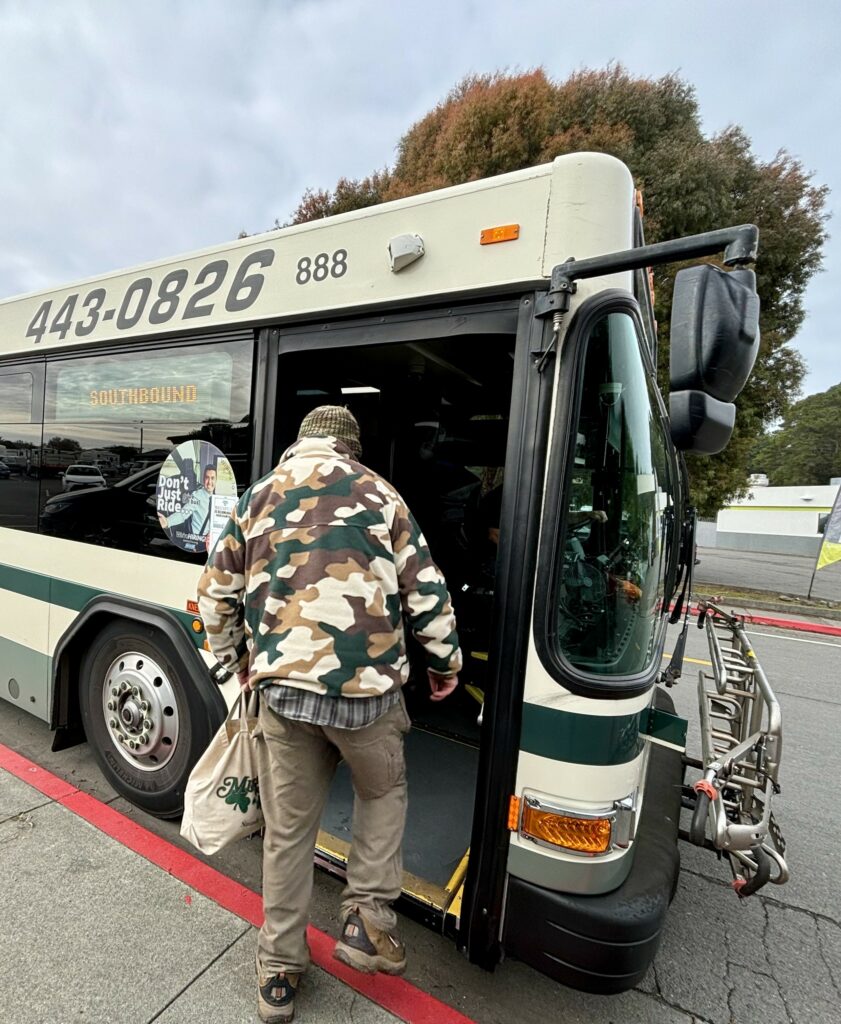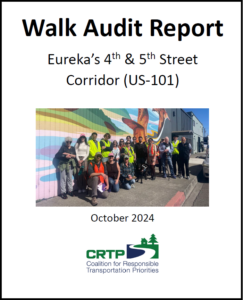What if you couldn’t drive? What if taking the bus, riding a bike, walking or asking for rides weren’t a choice you could make, but a necessity? What would it be like getting around without driving yourself?
For people who can drive, and can afford a car, this isn’t something you think about. But for people with disabilities, young people, seniors and people who can’t afford cars or gas — this is their every day.
To help local residents and decision-makers understand the experiences of non-drivers, CRTP has worked with Tri-County Independent Living, the Humboldt County Association of Governments, and the Humboldt Transit Authority to host the National Week Without Driving in Humboldt County each year since 2023.
Here is what it means to participate in the Week Without Driving:
- You can get around however you want, but the challenge is not to drive yourself in any car. If you end up driving during the week, you won’t get in any trouble. We just ask that you reflect on why you ended up driving, and what you would have done if you didn’t have that option.
- The challenge applies to all your activities — not just your work commute. If you normally transport other family members or friends, it applies to those trips too.
- You can ask someone else to drive you, but make a note of how much you “owe” this person in their time, and if you felt obligated to support them in other ways. You can use taxis or ride hail if they exist where you need to go, but again, think about how the cost could impact your decision to take this trip if this was regularly your only option.
- We’ll provide you with tools to prepare for the Week Without Driving and prompts during the week to reflect on what you’re learning and share with your community and other participants in the Week Without Driving.
- This isn’t a disability simulation or a test of how easily you can find alternatives. We know that it is far easier to give up your keys if you can afford to live in a walkable area well served by transit, or can outsource your driving and other transport and delivery needs to other people. Having to drive during the week does not signify failure. The point is to consider how someone without that option would have coped, and what choices they might have made.
The 2025 Week Without Driving runs from Monday, September 29th through Sunday, October 5th. Sign up below to participate in the 2025 Week Without Driving!
How have participants done in the past, and what did they learn?
In 2024, we also led two walk audits in Eureka’s 4th & 5th Street/US-101 corridor as part of the Week Without Driving. Click below to read the report that resulted from these audits.


